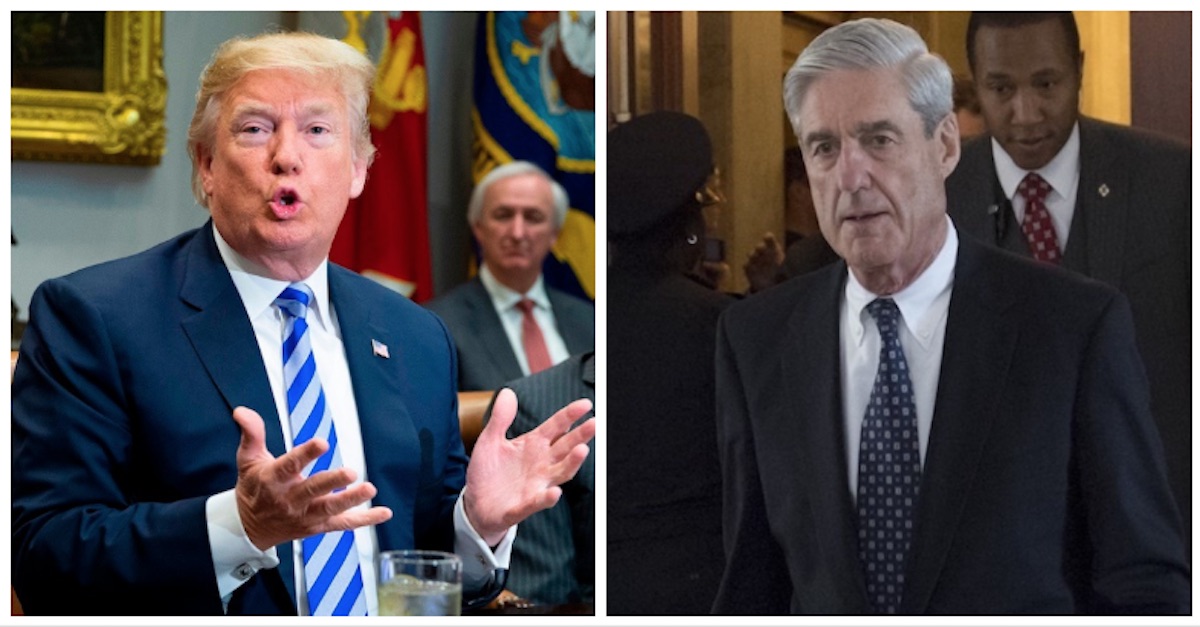
President Donald Trump expressed his feelings about facts on Thursday in comments to Bloomberg, including that he views special counsel Robert Mueller‘s Russia probe as “illegal.”
“I view it differently. I view it as an illegal investigation,” the president said, citing unnamed “great scholars.”
“There should never have been a special counsel,” he added.
Of course, this is not news in the sense that Trump often refers to the Russia investigation as a RIGGED and ILLEGAL WITCH HUNT, but it is news in the sense that Trump has repeated a claim that has been debunked a number of times already by federal judges, in light of their rulings.
Indeed, even a judge that Trump appointed in 2017 has ruled against a challenge of Mueller’s authority brought before the court by alleged troll farm Concord Management and Consulting, LLC. You may recall that Dabney L. Friedrich informed Concord that their challenge of Mueller’s authority was a losing one.
Just over two weeks ago, Friedrich explained at length why Mueller’s appointment as special counsel was proper and that he had the power to prosecute Concord. All of this argumentation centered on the Appointments Clause of the Constitution and whether Mueller is an “inferior officer” or “principal officer.”
The difference is important because principal officers are to be nominated by the president of the United States “with the Advice and Consent of the Senate.”
Inferior officers, on the other hand, have different rules: “Congress may by Law vest the Appointment of such Inferior Officers, as they think proper, in the President alone, in the Courts of Law, or in the Heads of Departments.”
Friedrich, along with other judges, have consistently held that Mueller is an “inferior officer.” Friedrich also stated that the (acting Head of Department) Deputy Attorney General Rod Rosenstein‘s memo empowering Mueller as special counsel “does not limit the Special Counsel to investigating individuals and entities that are part of the Russian government.”
“Rather, the Special Counsel may investigate the Russian government’s interference ‘efforts,’ which involved non-governmental third parties,” the judge said. That’s not all.
Mueller’s authority is quite broad and has been from the beginning:
The Special Counsel is authorized to conduct the investigation confirmed by then-FBI Director James B. Comey in testimony before the House Permanent Select Committee on Intelligence on March 20, 2017, including:
- (i) any links and/or coordination between the Russian government and individuals associated with the campaign of President Donald Trump; and
- (ii) any matters that arose or may arise directly from the investigation; and
- (iii) any other matters within the scope of 28 C.F.R. § 600.4(a).
(c) If the Special Counsel believes it is necessary and appropriate, the Special Counsel is authorized to prosecute federal crimes arising from the investigation of these matters [emphasis ours].
In any case, Friedrich is not the only judge to rule this way. Everyone who has challenged Mueller’s authority up to now has lost, though it is worth mentioning that both Concord and ex-Roger Stone aide Andrew Miller both have active appeals of rulings against them.
[Images via Alex Edelman-Pool/Getty Images, Saul Loeb/AFP/Getty Images]